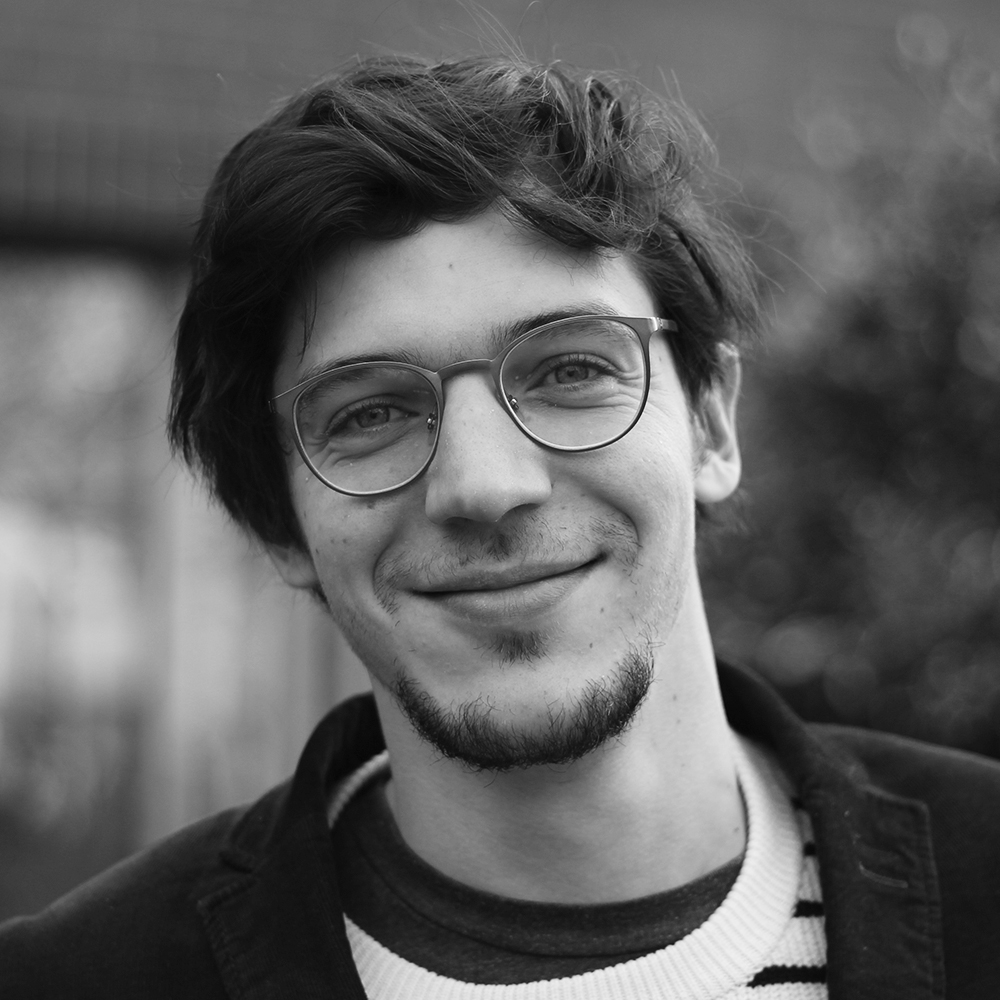Universitätsstr. 105
44789 Bochum
Room: UNI 105, 3/25
Phone: +49 (0) 234/32-2729
E-Mail: niklas.kammermeier@rub.de
Title of the Dissertation
Between podium and pillory. Perpetrators in documentary films.
Project Description
„This is not material for a movie! He is playing the repentant sinner, and you’re in the role of the supposed observer. He’s purging himself through you. And you will cash-in on another profound film. Stop flirting with evil, you and he are not in the same boat.“ (From the film Z32)
This research project aims to examine the aesthetics and the discursive quality of perpetrator appearances in documentary films. I will analyse moments and scenes in which individuals who committed an illegal or reprehensible act step in front of a camera and function as a responsible representative, indexical authority or witness of their own deed. I will focus on U.S. film productions and productions from German-speaking countries since about 1990.
The paper deals with three core theses:
(1) The relationship of perpetrator appearances in film to reality can be regarded as a process of negotiation between the perpetrator’s and the filmmaker’s representational intentions. In this context, the perpetrator often has the creative freedom to describe actions, to engage in self-disclosure, apologetic manoeuvres, and theatrical and performative self-dramatization. The filmmakers, however, dispose of the entire bandwidth of pro-filmic and film aesthetic tools. The (often conflicting) claims to reality and interpretation are essential elements of these stagings.
(2) Perpetrator appearances generate their claims to representing reality in a certain tension between documentary excess and withholding. In this connection, strategies of media technological certification and established methods of investigation, such as lawsuits or interrogation, encounter moments of unknowingness, de-realisation, and fictionalisation. The conflict of indexical referentiality and its disconcertion via poses, re-enactments and the aesthetics of fiction film is of particular interest here.
(3) Perpetrator appearances are precarious in terms of knowledge transfer and the culture of memory. It is assumed that perpetrators “do not want to be publicly acknowledged, but are eager to remain invisible” (Aleida Assmann). This is why the appearances of perpetrators are not only considered as a cinematic feat, but are also critically questioned in terms of motivations, intentions, and personal advantages – in short, the “terms of the contract” between perpetrator and filmmaker. In this connection, manipulation, minimising guilt, monumentalisation, glorification, and even historical revisionism and forgetting are constant threats. Hence, contextually and culturally different “rules of appearance” regulate not only who is allowed to appear, but also how these appearances are to be framed. These rules comprise the relations between identification and dissociation, self-disclosure and contextualisation, improvisation and framing, unveiling and disguise, aesthetic design and formal reduction. They are rarely drafted in an explicit manner, but they appear all the more evident in moments when they are intentionally or unintentionally violated.
These hypotheses will be assessed by way of an examination of particular periods in the history of documentary film. These include the striking proliferation of perpetrator appearances in U.S. documentaries in the 1990s, the controversies surrounding perpetrator appearances in German documentary films at the beginning of the 1990s, and the most recent presentations of perpetrators in NS documentaries and NETFLIX productions. The aim is to identify certain aesthetic and discursive patterns and to sharpen our understanding of perpetrators as documentary authorities and figures of memory within documentary film.
Scholarly Career
- Since 05/2017: Doctoral Student Member of the DFG Graduate Research Group on “Documentary Practices. Excess and Privation”, Ruhr-University Bochum
- 10/2013 to 12/2016: Master studies in “Inszenierung der Künste und der Medien”, University of Hildesheim
- 10/2009 to 12/2013: Bachelor studies in “Szenische Künste”, University of Hildesheim
University Courses
- Summer term 2015: Tutorial in the Editing Laboratory of the Department of Media and Popular Culture, University of Hildesheim
- Summer term 2015: Seminar “Reenactment im Dokumentarfilm”, Institute of Media and Popular Culture, University of Hildesheim
- Summer term 2014: Academic-art project “(Selbst-)verschwendung dokumentieren”, as part of the project term 2014 at the Institute of Media and Popular Culture, University of Hildesheim
Publications
„The Making Of a Screen Image.“ In: Re- and Dissolving Mimesis. Reflections on LoL History. Eds.: Elisa Linseisen, Sebastian Althoff, Maja-Lisa Müller and Franziska Winter; Bielefeld: Fink, 2020 (forthcoming)
„Allzu oberflächlich.“ In: Exzess und Entzug: Ferres vor Gursky, Ferres vor Immendorf. Eds.: Friedrich Balke, Natalie Binczek, Maren Haffke and Simon Rothöhler; Spector Books: Leipzig, 2020 (forthcoming)
“Die Wirklichkeit des Clowns. Post-kinematografische Heimwege.” In: cargo. Film Medien Kultur (online: https://www.cargo-film.de/kino/joker/), 2019
„Es wird ein Tag kommen. Wie die infamen Dokumente eines Medienereignisses der alten BRD die Zeit überdauert haben.“ In: cargo. Film Medien Kultur (Volume 36/ December 2017)
Vorträge
“Wundkanal (1984) als Ritual der Grausamkeit.” Summer Academy ‘Media Philology 2019’, Rutgers University, New Brunswick, NJ, USA, 27. – 29.08.2019
“Post-Cinematic Perpetrators. Theatricality as means of (reflections on) torture in Wundkanal (1984).” The NECS 2019 Conference, Gdansk, Poland, 13. – 15.06.2019
“Täterauftritte im Dokumentarfilm.” Talk presented as part of the lecture series Das Dokumentarische II, Ruhr University Bochum, 24.01. 2019
“Monitoring Perpetrators.” Talk presented as part of the workshop “Reflections on LOL History”, DFG-Forschungsgruppe “Medien und Mimesis”, Academy of Fine Arts Munich, 11. – 12.01.2019
„Verhör, Auftritt, acousmêtre – Räume des Audio-Monitorings in ‚Mindhunter‘.“ 31. Film- und Fernsehwissenschaftliches Kolloquium, Ruhr University Bochum, 13. – 15.02.2018
„Hot Mugshots: Corporeality in Perpetrator Photographs.“ Double Exposures: Perpetrators and the Use of Photographs, Mechelen, Belgium, 11 – 13.01.2018

